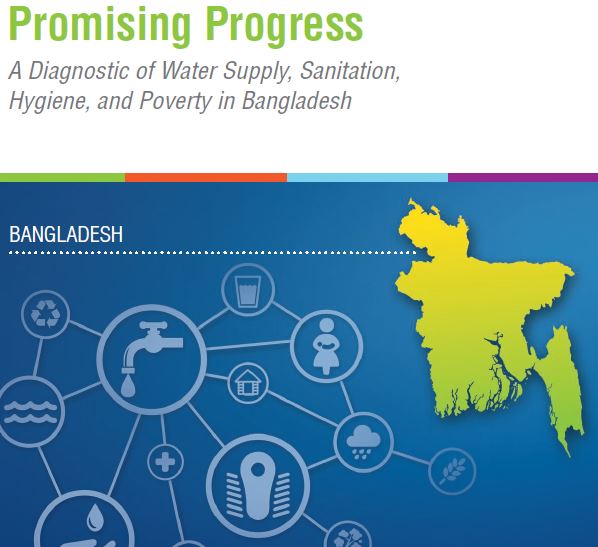Promising Progress A Diagnostic of Water Supply, Sanitation, Hygiene, and Poverty in Bangladesh
Ensuring safe water supply, sanitation, and hygiene (WASH) environments in Bangladesh is a cornerstone for its development. Poor WASH is, of course, an important issue of public health, due to its potential to cause water-borne illness and even increased risk of mortality. But its ultimate impact extends much further. Poor WASH can ripple through the country’s entire development process, holding back gains in human capital and efficient use of labor that are needed for sustainable prosperity. Perhaps one of the most extreme effects of inadequate WASH is the onset of chronic intestinal infections that can cause a higher rate of stunting: the failure of children to grow to full physical stature and mental capabilities. A less dramatic but still severe impact is the recurring disruption of education as bouts of diarrheal disease can keep children home from school. Productive wealth-creating activities and income can be lost to the days of illness recovery or to excursions for collecting water. These are just a few ways the larger campaign to fight poverty can be impeded. Yet, inadequate WASH can be seen as attributes to poverty itself. Being poor is not just a matter of too little income. Poverty is also measured by dimensions such as basic services that are available to a household and the quality of its shelter and surroundings. In the end, inadequate WASH, with its accompanying sights and smells, can make people poor.
